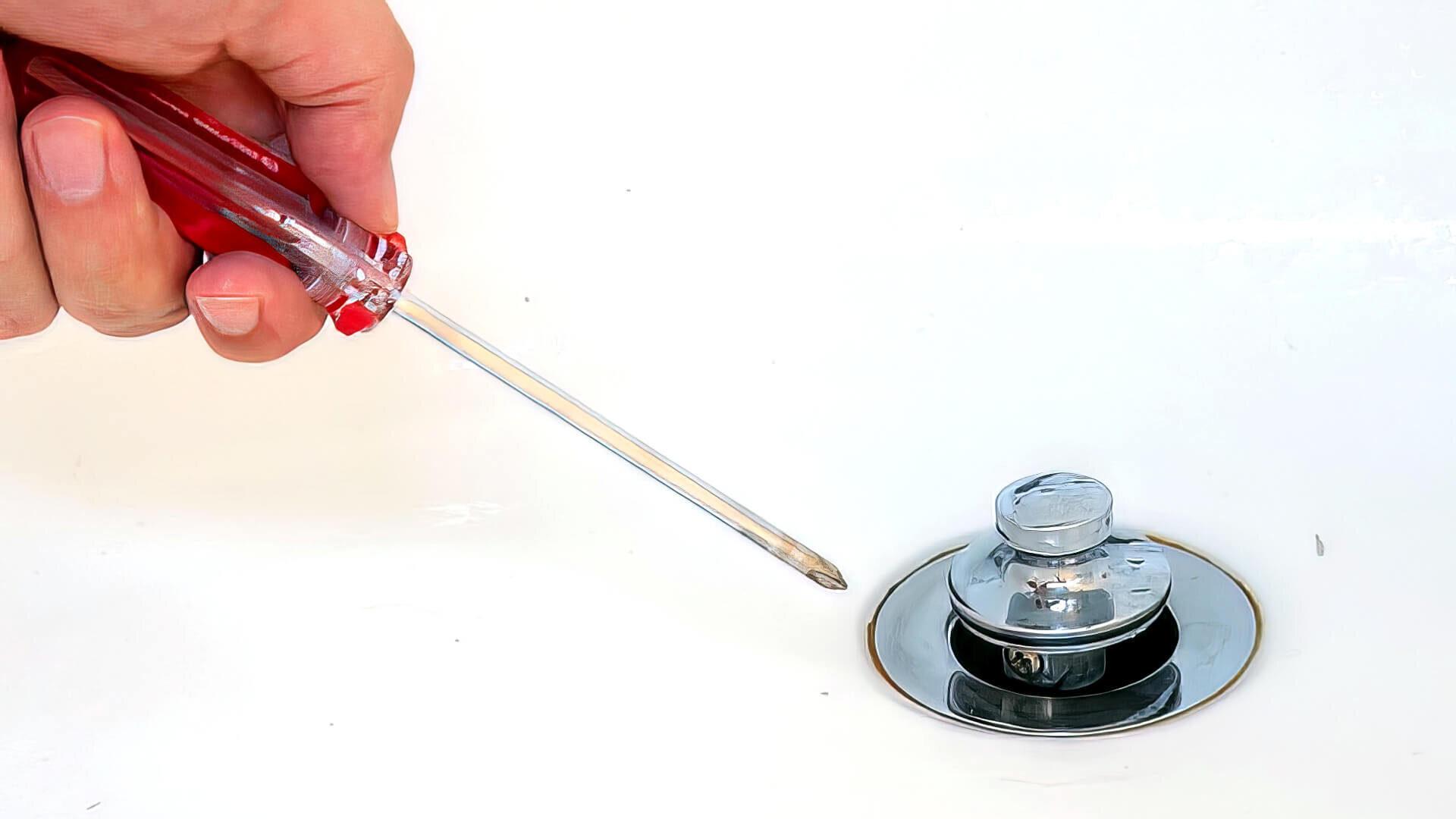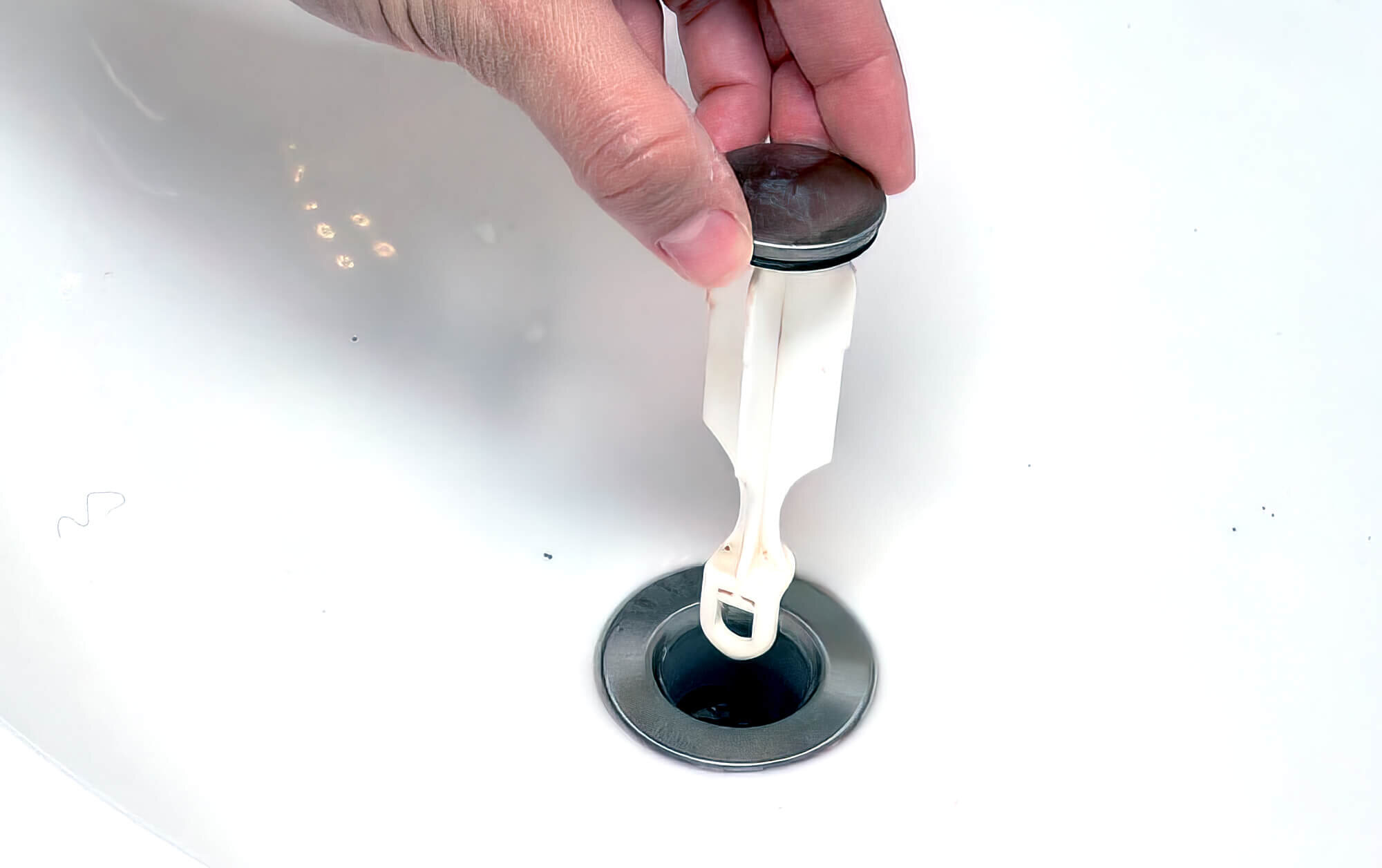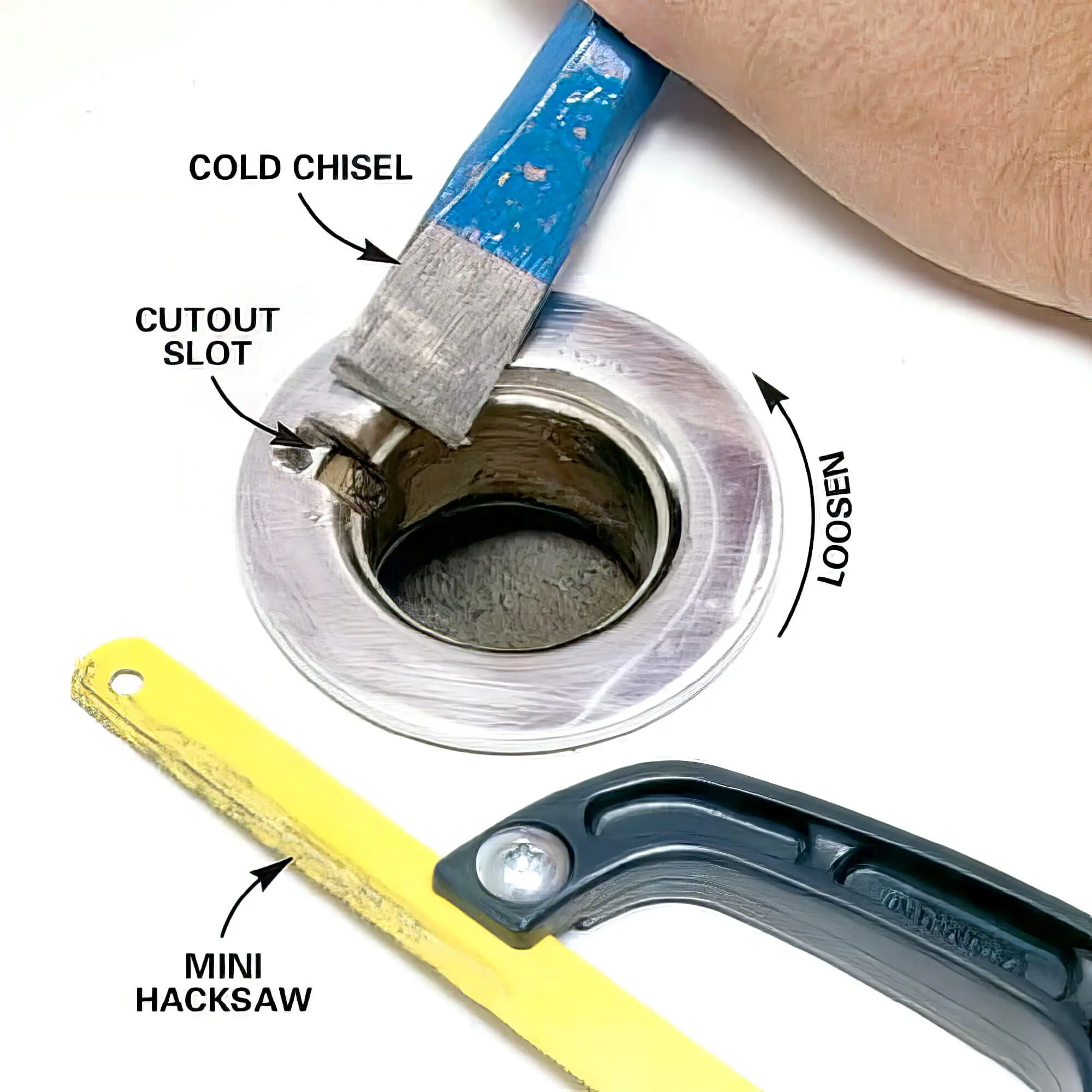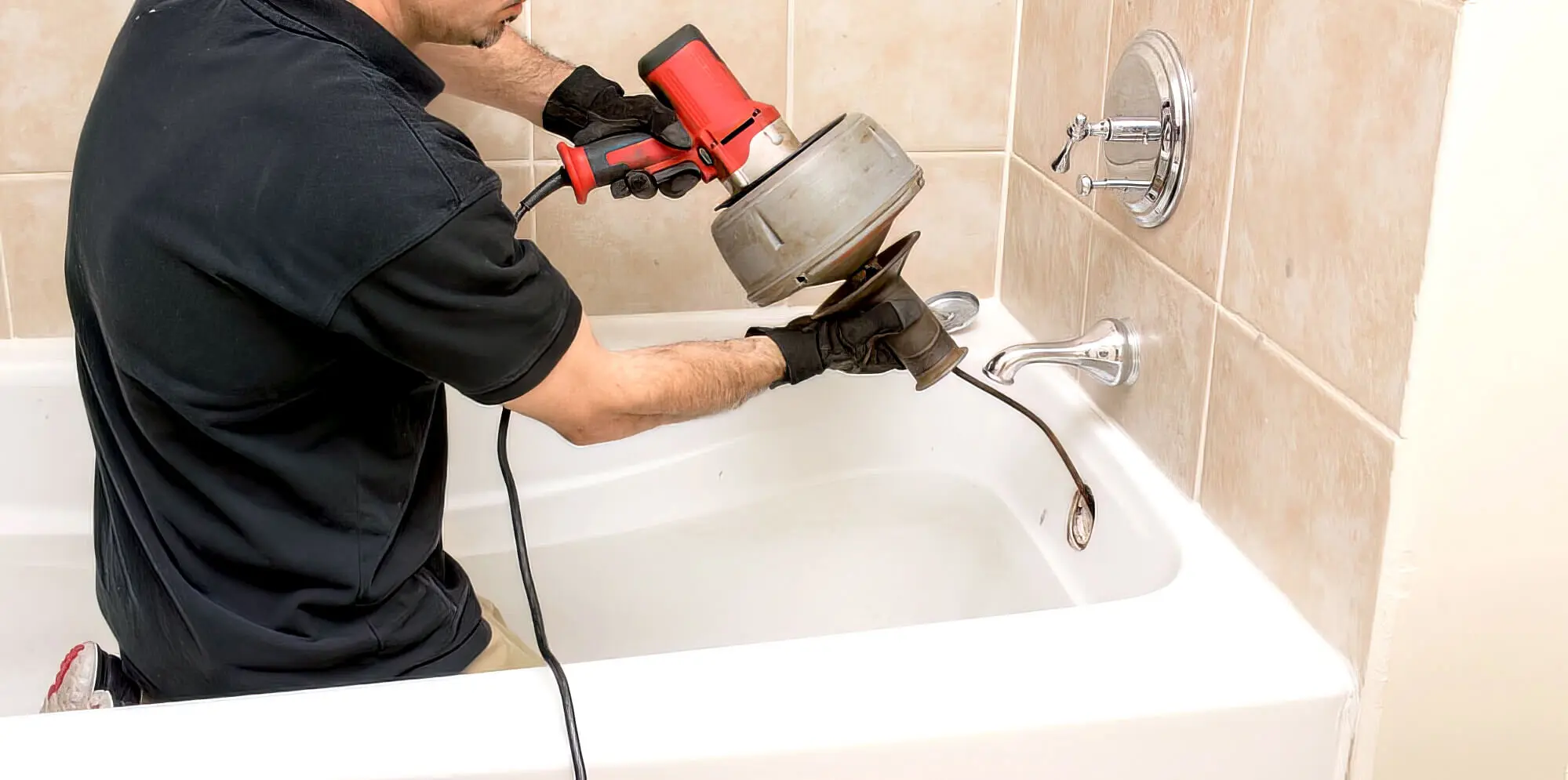Removing the drain hole in your bathtub is a great way to keep your bathtub and drain fittings in top condition.
Sometimes, the drain filter can make cleaning difficult. Removing the bathtub drain can solve this, giving you better access to the central plumbing system.

Similarly, you might have to replace the bathtub drain if it is leaking or badly corroded.
Most drain fittings are pretty easy to take out. That’s why we’ve put together this guide with straightforward techniques to help you remove the bath drain.
So, let’s dive into our guide to bathtub drain removal!
How To Remove Bathtub Drain Stopper
The first step to removing a bathtub drain is taking apart the trip lever. But keep in mind, most modern bathtubs come with a drain tub stopper, which can be a bit tricky and take longer if you don’t use the right technique.
The method to remove the tub drain heavily depends on the type of stopper installed in the bathtub. Here are some tips to remove the drain and different stopper models more efficiently.
1. Push-Pull Drain Stopper
To remove this type of tub drain stopper:
- Grasp the stopper and turn it anticlockwise.
- If it’s resistant, use needle nose locking pliers for a better grip.
- Alternatively, a drain wrench can be used for easier bathtub drain removal.
2. Toe-Touch Tub Drain Stopper
For a toe-touch stopper:
- Hold the top of the stopper with one hand and the shaft with the other.
- Turn the top anticlockwise to detach it.
- Remove the screw underneath with a screwdriver, then pop out the stopper.

3. Pres-Flo
Among all the stoppers, this one is really easy to remove since there’s nothing complicated about it. Just grab it and pull it out—simple as that!
4. Lift And Turn Drain Stoppers
This type is more complex:
- Rotate the stopper until you see a set of screws.
- Use a screwdriver or hex wrench to remove the screws.
- Gently pop out the knob to access the drain plug.
Tools Required To Remove The Flange
Now that you have removed the stopper, you can reach the visible section of the drain, which is usually termed the bathtub drain flange. A bathtub drain flange in the drain’s tailpiece region can be removed with a simple drain setup.
However, some bathtubs have a complex tub drain style, requiring specific tools to remove the drain flange. Here is a list of tools you can easily find in your house or local hardware store:
1. Dumbbell
A dumbbell is a tool designed for drain removal or other plumbing tasks and comes in a key shape to easily fit the crossbar. Once you have placed it properly, use a screwdriver or a wrench to turn it around.

2. Sturdy Drain Extractor Or Drain Key
If the tool mentioned above doesn’t remove the flange, use a sturdy tub drain extractor and a drain key. These tools use reverse-thread systems and wings to cling onto the flange for easy removal. After the tool latches onto the flange’s interior, you can twist it and open it with a wrench.
3. Screwdriver
Certain drains comprise crossbars that can be dislodged using locking pliers. Insert the screwdriver into the crossbars and turn it to remove the flange. However, there are certain instances when a regular screwdriver cannot reach the crossbar. In such a scenario, you must use a long screwdriver or try a different tool.
Step-By-Step Guide For Removing The Flange
1. Cleaning
It’s a good idea to clean the bath drain’s opening before doing any standard repairs or maintenance. These areas can accumulate a lot of waste. If left uncleaned, the gunk can obstruct your view when replacing the flange.
In addition, removing hair from the drain can make things easier when you install a new flange.
2. Drain Key
The next step is to take the drain key and place it in the bathtub’s drain opening. A wrench can turn the drain key anticlockwise until the wings hook onto the drain fitting.

3. Unscrewing
From this point, a screwdriver or a plug wrench can be employed to unscrew the flange from the primary drain system. But you will face many challenges since putty, calcium build-up, and grime prevent the fringe and drain fitting from detaching.
Heat is one of the most effective ways of removing stubborn waste build-up and plumber’s putty, which can help soften the debris. Thus, we recommend using a hairdryer or a heat gun to loosen the grime and plumber’s putty to facilitate flange removal.
4. Clean The Drain Opening
After removing the flange, you will notice some residual putty stuck at the drain opening. You can use a putty knife to scrape out the remaining debris on the surface, but people who don’t own a putty knife can also use a flathead screwdriver.
In addition, you should remove residual gunk and hair stuck in the opening to prevent your drain from becoming blocked in the future.
Removing Bath Drain — The DIY Way
A bathtub drain is essential for keeping the tub and drain fitting clean and hygienic, so it should be maintained properly.
An emergency plumbing situation can be triggered in the bathtub when excess hair and soap accumulate to the point of blocking the drain. However, this can be avoided by using a filter to prevent hair and dust from entering the drain.
To tackle plumbing issues, try using baking soda and hot water to clear out any gunk or debris in the drain. Also, make sure you don’t forget to clean the overflow drain.
If personal maintenance of the bathtub drain is not feasible, you can enlist the services of Big Blue Plumbing, which will professionally remove it.
Our offerings cover an extensive range of home improvement services, particularly plumbing repairs, at an economical price. So whether you have a blocked bath or want your old tub drain replaced — we can do it for you!
Please read our guide before removing the bath drain; you won’t face any problems!



